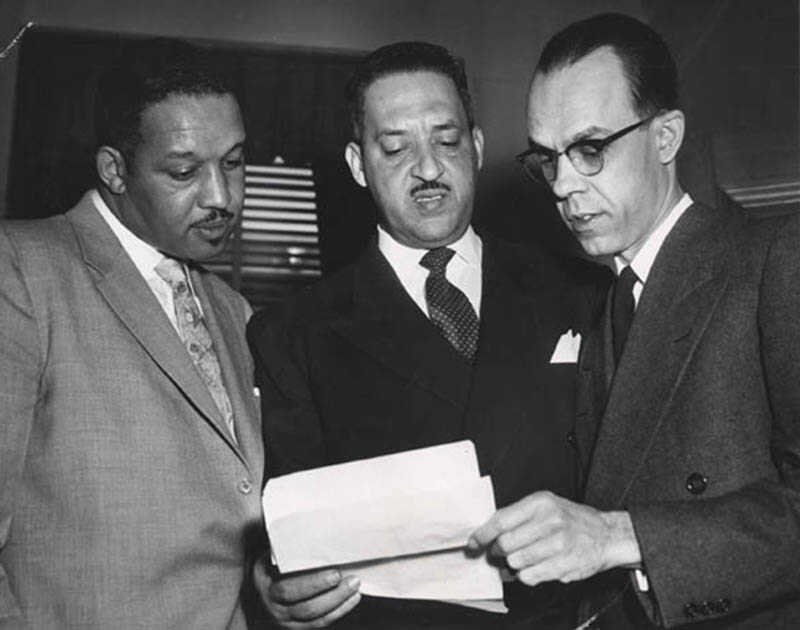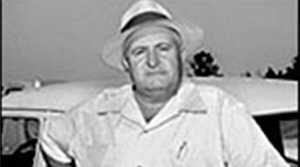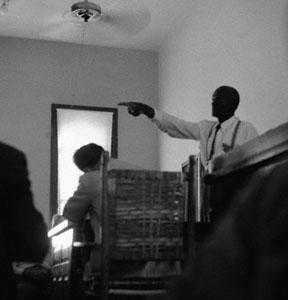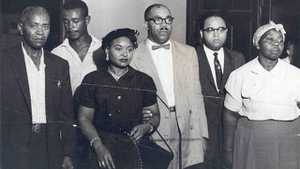White Citizens' Councils

The Brown v Board of Education decision was a watershed moment in American history. On May 17, 1954, in an unprecedented decision, the Supreme Court abolished legal school segregation. Blacks hailed the decision. Whites in the Deep South called the day "Black Monday." Some white Southerners channeled their ire into a new movement called Citizens' Councils — organizations of white segregationists and supremacists who opposed integration and the Supreme Court decision.
The movement, led by Mississippi Circuit Court Judge Tom P. Brady, grew to encompass virtually the state's entire white business class. Council members published a book entitled Black Monday which outlined their simple beliefs: African Americans were inferior to whites and the races must remain separate. "If in one mighty voice we do not protest this travesty on justice, we might as well surrender," Brady wrote.
The first Citizens' Council meeting was convened two months after the Brown v. Board of Education decision in a living room in Indianola, the heart of the Mississippi Delta. Soon hundreds of chapters with thousands of members spread like wildfire across the South. Members would meet regularly in living rooms and send in donations. The group even had weekly TV and radio programs, and states would sponsor promotional films spotlighting the benefits of segregation. The Councils' view of themselves as a cut above the violent tactics of the Ku Klux Klan gained them the title "uptown Klan."
The councils picked up momentum and legitimacy in 1956 when the Mississippi legislature formed the State Sovereignty Commission. The Sovereignty Commission contributed funds to the Citizens' Councils and formed a covert network that tracked blacks and whites. Blacks in favor of integration or seen trying to register black voters would lose their jobs, their homes, even their lives. White businessmen would face boycotts and politicians would lose votes if they were believed to be sympathetic to African Americans' efforts at integration.
The Citizens' Councils claimed they did not sanction violence, but the venom spouted at their meetings and from their leaders, particularly Mississippi's segregationist senator and plantation owner James O. Eastland, fostered a violent, reactionary climate where punishment against blacks was sanctioned.
The Councils' grip on Mississippi was effective. By 1956, they claimed a membership of 80,000. Schools remained overwhelmingly segregated and black voter registration drives were thwarted. In 1959 the Councils played a crucial role in electing staunch segregationist Ross Barnett to the Governor's office.
Today the Council of Conservative Citizens carries the torch of the Citizens' Councils. "Promoting the interests of European Americans," the anti-civil rights and anti-immigrant group advocates for its ideas in chapters throughout the South.







